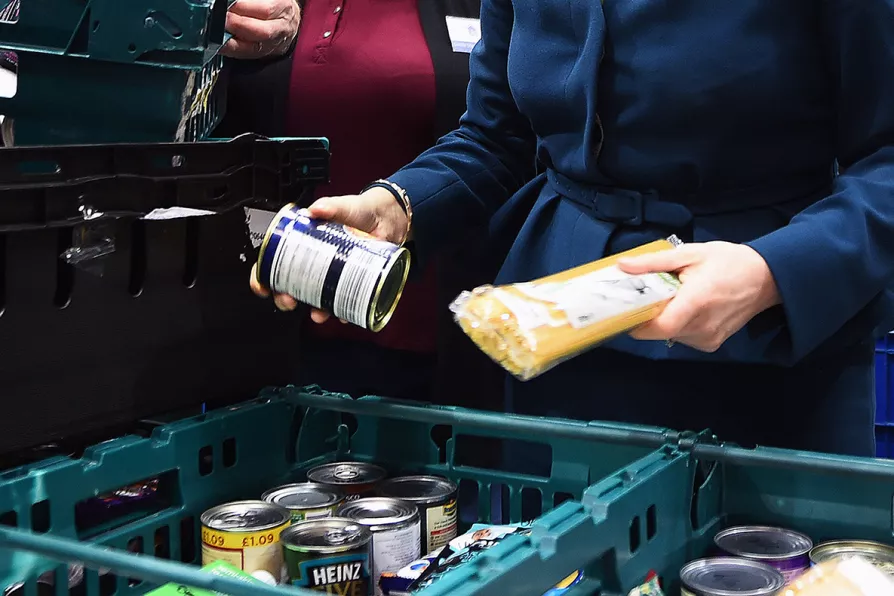
 Goods at a food bank
Goods at a food bank
HUNDREDS of anti-poverty campaigners took to Westminster on Wednesday to demand urgent action on rising hunger and hardship.
Volunteers at local foodbanks, representatives from community food organisations and public figures including comedian Nish Kumar were among those in attendance.
Mr Kumar said: “We know the most important solution to ending the need for food banks — ensuring people have enough money in their pockets to put food on the table.
“This is a political choice, and our government has the power to end it.”
The action was part of the Guarantee our Essentials campaign, led by the Joseph Rowntree Foundation and Trussell Trust, which calls on the government to ensure that universal credit provides enough support to cover basic living costs.
More than 9.3 million people, including three million children, are facing hunger and hardship across Britain, the Trussell Trust warns.
The action took place on the same day the government introduced its draft welfare reform Bill, which proposes cuts to personal independence payments, a key disability benefit, and the health-related element of universal credit.
The cuts will push 440,000 more people in disabled households into severe hardship, the trust estimates.
The charity says that three in four people who come to its foodbanks are disabled or live with someone who is, disability payments often already falling short of covering the essentials.
So far, 42 Labour MPs have signed a letter saying they cannot support the cuts.
And the Independent Alliance of MPs, including Jeremy Corbyn and Zarah Sultana, have tabled an amendment to the Bill, declining to give it a second reading as it “fails to provide a fair and compassionate approach to reforming disability benefits.”
Trussell director of policy Helen Barnard said: “It is easy to see why so many MPs have voiced concerns about the damage this Bill will do.
“What has been published today offers little for MPs deeply concerned about the impact of these cuts on their constituents.
“The last-minute details on protections offer something for a small proportion of people, but even they will still see a real-terms cut.
“The reality of this Bill is still record cuts in support for disabled people, and the biggest cuts to social security since 2015.”
The trust has suggested that the government boosts universal credit, raising it by £5 a week after inflation from April 2026, not April 2029, as currently planned.
A Government spokesperson said: ”The vast majority of people who are currently getting PIP will continue to receive it but with more than 1,000 people being awarded PIP every day – double what it was at the pandemic – it’s important we move swiftly to protect the safety net.
“Further to this, we’ve just announced a new £1 billion package to reform crisis support as well as introducing a new Fair Repayment Rate, which will allow 1.2 million households to keep more of their Universal Credit.”

The government’s retreat on PIP still leaves 150,000 new universal credit claimants facing halved benefits from April 2026, creating a discriminatory two-tier welfare system that campaigners must continue fighting, writes DR DYLAN MURPHY












